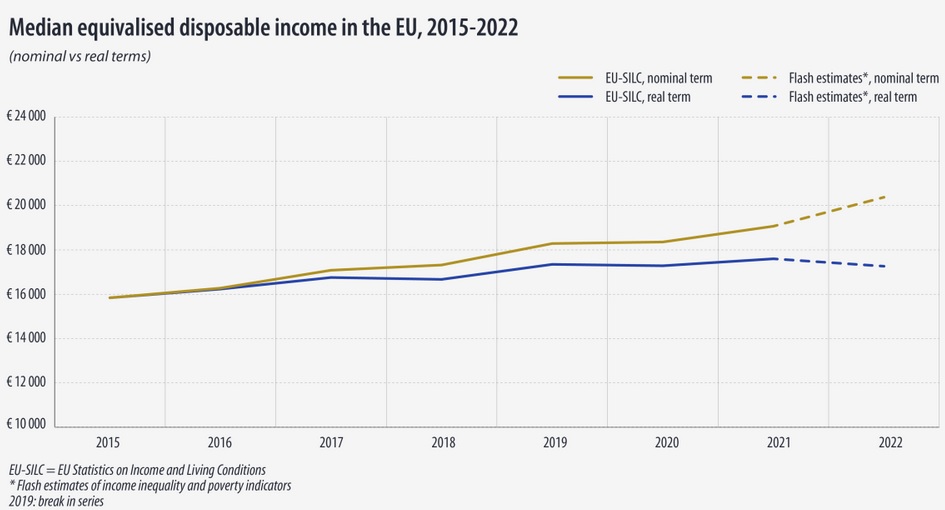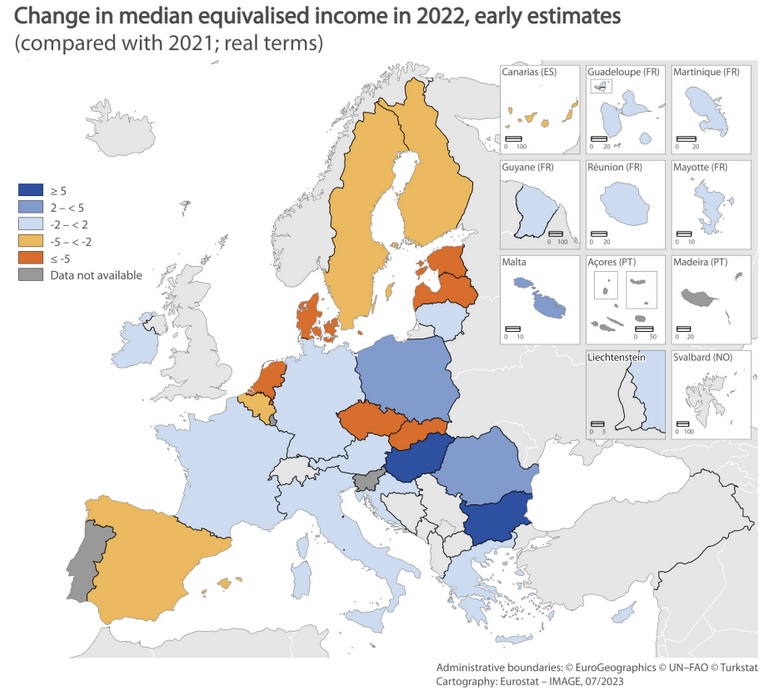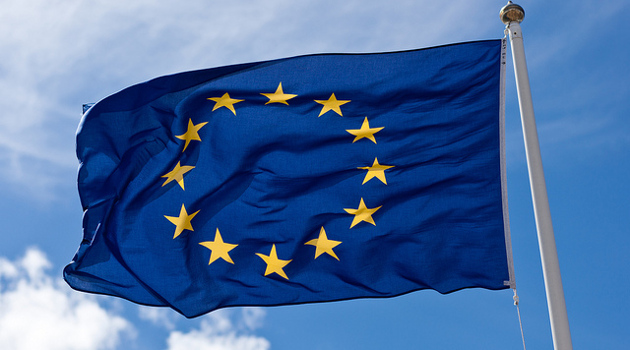Part I of this series reviewed some data about the United States growing much faster than the welfare states of the European Union.
Part II of the series looked at some very depressing data about the European Union losing ground compared to the United States, even though convergence theory tells us that should not happen.
For today’s installment, let’s see what the European Union’s statistical body concluded in a new report about the region’s economic performance. We’ll start with this chart showing that inflation-adjusted disposable income (the blue line) declined last year.

To be sure, American households also suffered a decline in inflation-adjusted income, so this is not just a Europe-specific problem.
Here’s some of Eurostat’s analysis.
…the nowcasted median disposable income will decrease in real terms in most EU countries. Rising prices for essential items (goods and services), such as food, energy and transport were the main reason for the decrease of the real income. …It is estimated that inflation led to a 1.9 % decrease for EU median disposable income in real terms in 2022 (compared to 2021). The effect of inflation is likely stronger for low-income households, as essential items represent a higher share of their overall consumption, and they have little margin for adjusting their consumption. In this context, the at-risk-of-poverty rate anchored in 2021…is estimated to statistically significant increase for about half of the EU countries. …Figure 6 shows the change in median disposable income in real terms at country level. The largest decreases were estimated in Estonia, Latvia, the Netherlands, Denmark, Slovakia and Czechia. It increased most sharply in Hungary and Bulgaria.
Here’s the map showing which nations enjoyed more real income in 2022 (dark blue) and which ones suffered big losses (dark orange).

Though don’t assume that nations such as Hungary and Bulgaria had good policy.
Inflation-adjusted disposable income can go up for good reasons (faster growth, lower taxes), but it also can increase for not-so-good reasons (more handouts).
P.S. The data above does not include the United Kingdom, which wisely left the European Union, or Switzerland, which wisely never joined.
———
Image credit: Håkan Dahlström | CC BY 2.0.


